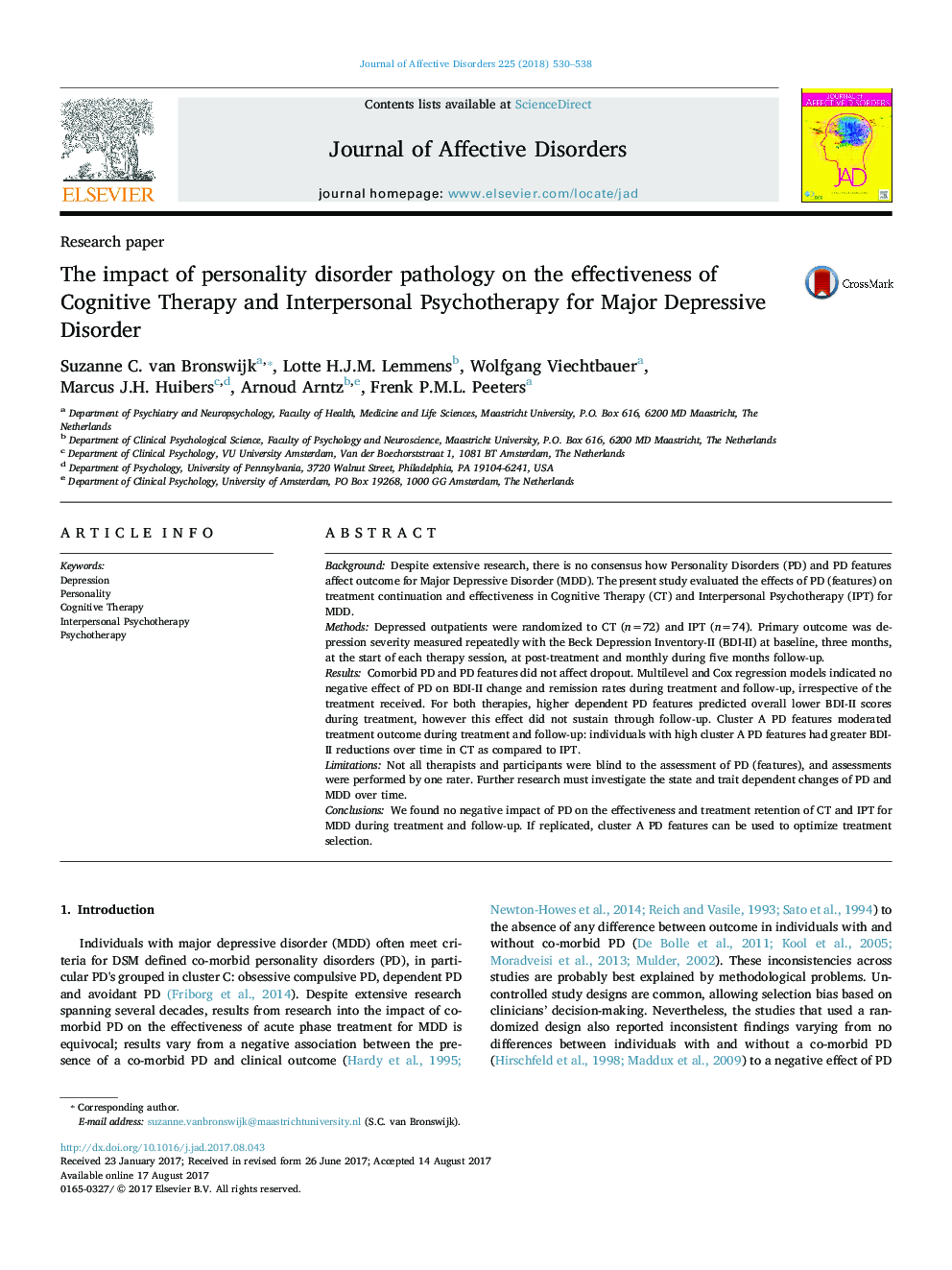| کد مقاله | کد نشریه | سال انتشار | مقاله انگلیسی | نسخه تمام متن |
|---|---|---|---|---|
| 5721755 | 1608100 | 2018 | 9 صفحه PDF | دانلود رایگان |
- It is unclear if and how personality disorders (PD) affect treatment for depression.
- We examined the effects of PD (features) in two commonly used therapies: CT and IPT.
- In both conditions, PD did not affect treatment outcomes and drop-out.
- Individuals with cluster A features fared better on CT as compared to IPT.
- Results apply to both the acute treatment phase as well as up to 5-months follow-up.
BackgroundDespite extensive research, there is no consensus how Personality Disorders (PD) and PD features affect outcome for Major Depressive Disorder (MDD). The present study evaluated the effects of PD (features) on treatment continuation and effectiveness in Cognitive Therapy (CT) and Interpersonal Psychotherapy (IPT) for MDD.MethodsDepressed outpatients were randomized to CT (n=72) and IPT (n=74). Primary outcome was depression severity measured repeatedly with the Beck Depression Inventory-II (BDI-II) at baseline, three months, at the start of each therapy session, at post-treatment and monthly during five months follow-up.ResultsComorbid PD and PD features did not affect dropout. Multilevel and Cox regression models indicated no negative effect of PD on BDI-II change and remission rates during treatment and follow-up, irrespective of the treatment received. For both therapies, higher dependent PD features predicted overall lower BDI-II scores during treatment, however this effect did not sustain through follow-up. Cluster A PD features moderated treatment outcome during treatment and follow-up: individuals with high cluster A PD features had greater BDI-II reductions over time in CT as compared to IPT.LimitationsNot all therapists and participants were blind to the assessment of PD (features), and assessments were performed by one rater. Further research must investigate the state and trait dependent changes of PD and MDD over time.ConclusionsWe found no negative impact of PD on the effectiveness and treatment retention of CT and IPT for MDD during treatment and follow-up. If replicated, cluster A PD features can be used to optimize treatment selection.
Journal: Journal of Affective Disorders - Volume 225, 1 January 2018, Pages 530-538
